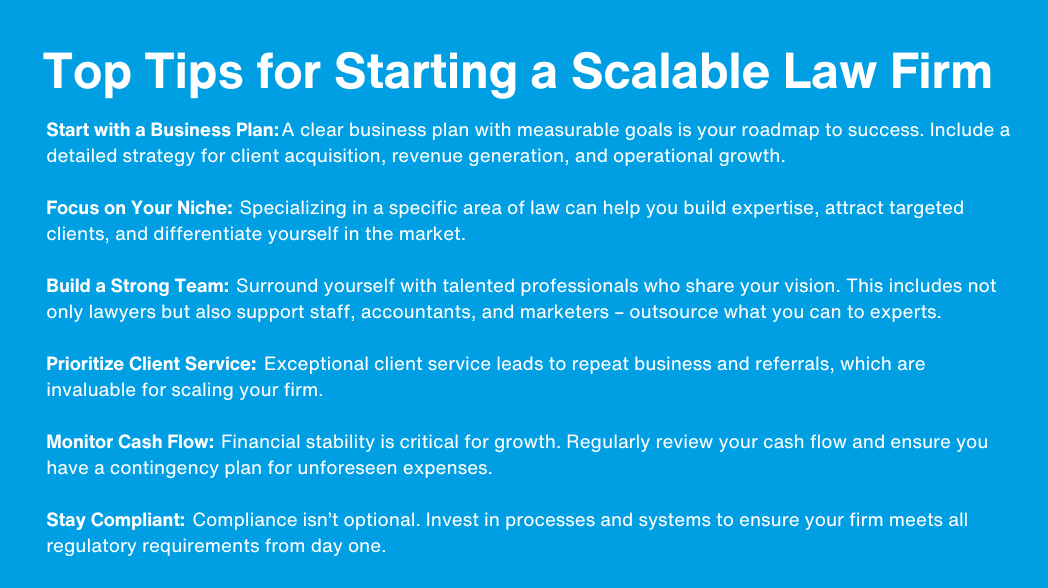Shaping the Future of Scottish Law Firms
The Scottish legal industry continues to evolve rapidly, with forward-thinking firms embracing cutting-edge technology and expert financial management to drive efficiency, compliance, and long-term success. One standout example of this new wave of modern law firms is Robertson Murdie, a brand-new legal practice with bold ambitions. Determined to build a future-proofed, scalable business from day one, the firm has chosen to partner with Cashroom and Clio, two industry-leading providers that are reshaping the way law firms operate in Scotland.
A Modern Law Firm for a Modern Legal Market
Founded by experienced solicitors Jamie Robertson and David Murdie, Robertson Murdie is not just another start-up—it is a firm designed to challenge traditional ways of working. Both partners bring years of expertise in property and private client law, but what sets them apart is their commitment to innovation and efficiency. The business has the luxury of starting with a blank sheet of paper. The firm offers only fixed fees for its work, which is a departure from the chargeable time model favoured traditional law firms. Their business model is designed to put client service first, and a solid administrative support team are on hand to make sure that instructions are managed efficiently. Recognising the challenges of managing a law firm—from compliance and financial oversight to case management and client service—they sought out the best technology and financial support available from the start.
After carefully evaluating the market, they made two key strategic decisions:
1. Clio as their Practice Management Software (PMS)
2. Cashroom as their outsourced legal cashiering and financial management provider
Why Robertson Murdie Chose Cashroom
Managing financial transactions, ensuring compliance, and keeping up with regulatory changes can be overwhelming for any law firm, let alone a newly established practice. Rather than hiring an in-house cashier or juggling financial admin themselves, Robertson Murdie turned to Cashroom, the UK’s leading outsourced provider of expert financial management for law firms.
What set Cashroom apart from other outsourced providers in Scotland?
Jamie Robertson, Robertson Murdie “What set Cashroom apart was that it is not a Practice Management Software
(PMS) provider bolting on cashiering services. Legal accounting is what Cashroom lives and breathes—nothing else. This singular focus on legal finance means that Cashroom offers unmatched expertise and dedication to legal accounting, which made them the ideal partner for us. We now have the confidence of knowing that our financial processes are managed by professionals who truly understand the complexities of legal financial regulations. For us, partnering with Cashroom was a strategic decision to ensure not just efficiency, but also full regulatory compliance, knowing they were choosing a partner with a proven track record in managing legal finances to the highest standards. We could then proceed with our PMS of choice, knowing that Cashroom would work with whatever we as a law firm needed”
- Regulatory Expertise: Cashroom specialises exclusively in legal sector financial management, ensuring full compliance with the stringent regulations set by the Law Society of Scotland. Co-founded by Les Cummings, who was at the time the Chief Accountant at the Law Society of Scotland, Cashroom has had Scottish regulation at its heart since its inception.
- Scalability & Flexibility: Cashroom’s tailored service is designed to scale alongside your business. This flexibility makes it the perfect partner for an ambitious firm like Robertson Murdie, who have big growth plans and needed a provider that can evolve with them as they expand. Unlike in-house teams or other outsourced providers in the UK, which often struggle with fluctuating workloads, Cashroom’s 150-strong team of expert legal cashiers and accountants provides unmatched scalability. As Robertson Murdie’s client base and caseload grow, Cashroom can adjust the level of service to meet their evolving needs, ensuring no disruption to service quality. The ability to scale up or down as required, without the overheads of hiring or training additional in-house staff, allows Robertson Murdie to stay agile while focusing on delivering exceptional client service. Cashroom is more than just a service provider—it’s a flexible, long-term partner for the future of the firm.
- Seamless Integration: Cashroom’s intuitive portal offers real-time financial oversight and ensures effortless collaboration between legal teams and finance professionals. One of the key advantages of choosing Cashroom is that it is system agnostic. Unlike other providers that are tied to specific Practice Management Systems (PMS), Cashroom allows law firms like Robertson Murdie to choose the exact PMS that meets their needs. This flexibility ensures that firms aren’t locked into a single system and can select the best solution to suit their workflow, whether it’s Clio, or any other PMS they prefer.
- Time-Saving Efficiency: By outsourcing cashiering, payroll, and compliance reporting, Robertson Murdie can focus on growing their business and serving clients—rather than managing spreadsheets and bank reconciliations.
- Security – Many outsourced providers still rely on email communication! This can pose significant risks when transferring sensitive financial information. Cashroom, however, takes a much more secure approach. Our custom-built portal is designed with advanced security protocols in mind, offering a safer way to manage financial transactions and client data. With Cyber Essentials Plus certification, Cashroom ensures that data security is upheld at every level, from encryption to fraud prevention. This added layer of protection not only safeguards your firm’s financial data but also gives clients peace of mind, knowing their sensitive information is handled with the utmost care. For Robertson Murdie, this robust security infrastructure means they can focus on growth and client service, knowing their data is in safe hands.
We are thrilled to welcome Robertson Murdie to the Cashroom family. As a worldwide organisation, we continue to see innovation and excellence thrive in Scotland. Our collaboration with Robertson Murdie is a perfect example of how forward-thinking firms can leverage both legal financial expertise and cutting-edge technology to build the next generation of law firms. We’re excited to support their growth and success as they establish themselves as a key player in the Scottish legal market.’ Chris O’Day, CEO Cashroom
Why Clio Was the Clear PMS Choice for Robertson Murdie
With an overwhelming number of Practice Management Systems (PMS) available, choosing the right one was a critical decision. After assessing multiple options, Robertson Murdie selected Clio, a market-leading cloud-based solution.
David has had some hands-on experience of Clio from his time as a student supervisor at the
University of Edinburgh’s Free Legal Advice Clinic. “The system gives the ability to design workflows, and system improvements are only ever a click away. Clio’s most appealing feature is the app integration, meaning we have excellent data consolidation and a lack of duplication in data entry. We loved the cloud-based proposition, which functions more like a website or tablet app than a PMS. Furthermore, the semi-automation of client onboarding is a massive bonus for us. The method of client onboarding lends itself more to paperless working, which is core to our operations strategy. So far, so good – our printer hasn’t arrived yet, and we haven’t missed it!” David Murdie, Robertson Murdie
Here’s why Clio was the standout choice for this Scottish start-up:
- Scottish Compliance Ready: Clio’s Scottish-specific functionalities ensure that firms like Robertson Murdie can stay compliant with jurisdictional requirements, including Law Society of Scotland guidelines.
- Seamless Workflow Automation: From document management and client communications to billing and time tracking, Clio automates repetitive tasks, boosting efficiency and reducing admin burdens.
- Accessibility & Flexibility: As a cloud-based system, Clio allows the firm’s solicitors to work anytime, anywhere, ensuring business continuity and flexibility—a must for a modern law firm.
- Integration with Cashroom: The Clio-Cashroom integration creates a frictionless financial workflow, eliminating double entry and ensuring real-time financial oversight.
The Future of Law Firms in Scotland: A Blueprint for Success
Robertson Murdie’s decision to embrace Clio and Cashroom is a testament to the changing face of the Scottish legal market. Rather than following the traditional model of hiring large in-house teams for finance and operations, or going to one of the traditional go-to PMS in Scotland, this firm has prioritised efficiency, technology, and expert outsourcing to create a streamlined, cost-effective, and highly scalable business.
“We’re really excited to develop our relationship with Cashroom and Clio. Chris and Emma have been so easy to get along with, and they really seem to understand what we’re trying to achieve. We’re a transparent, friendly, fixed-fee firm with a progressive outlook. What we need from providers is seamless integration with our business, but also with other providers. In addition, we’re an ambitious pair and one of our strategies is to scale by acquisition. Ultimately, if we’re not built to scale then that particular branch of our business strategy fails. We had to pick either cashroom employees or a cashroom service provider that understood how important growth is to us as business owners. We found that potential cashroom employees were nervous about a sudden increase in workload, whereas Chris didn’t blink when we told him our plans. A great start!” Jamie Robertson., Robertson Murdie
As more Scottish firms look to the future, the success of Robertson Murdie will serve as a blueprint for ambitious, forward-thinking law firms. With the right technology and financial management in place from day one, they are set up not just to survive—but to thrive.
“Seeing a promising new startup like Robertson Murdie adopt legal technology from day one is refreshing and positive. Not only does it help
shape their business by positioning them for efficiency, compliance, and hopefully long-term success, but the adoption of both Clio and Cashroom, who are partners of the Law Society of Scotland, also contributes to the future of how legal practices are run in Scotland.” Jack Rowberry, Law Society of Scotland
Want to learn how Cashroom and Clio can transform your law firm? Get in touch today and discover the power of modern legal technology and financial expertise.
Clio and Cashroom are both Law Society of Scotland Approved Suppliers 2025.
#TheFutureOfLaw #ScottishLawFirms #LegalInnovation #Cashroom #Clio
Get in touch to arrange a confidential chat with a member of our team.
P: 01695 550950
About Cashroom
 Cashroom provides expert outsourced accounting services for Law Firms including Legal Cashiering, Management Accounts and Payroll services. Our mission is to free lawyers from the complexities of legal accounting by supporting the industry with accurate management information and allowing lawyers to do what they do best – practice law.
Cashroom provides expert outsourced accounting services for Law Firms including Legal Cashiering, Management Accounts and Payroll services. Our mission is to free lawyers from the complexities of legal accounting by supporting the industry with accurate management information and allowing lawyers to do what they do best – practice law.

















 Can you tell us how Cashroom is supporting this?
Can you tell us how Cashroom is supporting this? 

 Catherine O’Day, Founder and Non Exec Director
Catherine O’Day, Founder and Non Exec Director





 There was real interest and excitement for the event and on 30th January a group of around 20 of us gathered at
There was real interest and excitement for the event and on 30th January a group of around 20 of us gathered at 





 change will bring. Defining why this change matters and how it will impact the firm sets a solid foundation. For example, if the change involves new technology for case management, explain how it will streamline client onboarding, improve document access, or enhance workflow efficiency. Engaging stakeholders early in the process—such as senior partners and department heads—ensures that key figures are aligned and supportive from the beginning. They can help communicate the vision consistently, reinforcing it across the firm to build understanding and enthusiasm.
change will bring. Defining why this change matters and how it will impact the firm sets a solid foundation. For example, if the change involves new technology for case management, explain how it will streamline client onboarding, improve document access, or enhance workflow efficiency. Engaging stakeholders early in the process—such as senior partners and department heads—ensures that key figures are aligned and supportive from the beginning. They can help communicate the vision consistently, reinforcing it across the firm to build understanding and enthusiasm.

 A great starting point is to take stock of your firm’s financial health. Reviewing your performance from 2024 allows you to understand what went well and where
A great starting point is to take stock of your firm’s financial health. Reviewing your performance from 2024 allows you to understand what went well and where 

 strengthened the security and accuracy of financial transactions for our clients, reducing fraud risks and ensuring smoother payment workflows for law firms.
strengthened the security and accuracy of financial transactions for our clients, reducing fraud risks and ensuring smoother payment workflows for law firms.

 cards, consider tailoring messages to individual clients, acknowledging shared successes or milestones from the past year. Consider gifting clients something thoughtful yet professional. Whether it’s a donation to a charity in their name, a book related to their interests, or a festive treat from a local business, a personal touch reflects your appreciation and can leave a lasting positive impression of your firm.
cards, consider tailoring messages to individual clients, acknowledging shared successes or milestones from the past year. Consider gifting clients something thoughtful yet professional. Whether it’s a donation to a charity in their name, a book related to their interests, or a festive treat from a local business, a personal touch reflects your appreciation and can leave a lasting positive impression of your firm.  bonuses, team recognition awards, or a simple thank-you message from firm leadership, acknowledging the contributions of every member is key to boosting morale. Encouraging your team to take a break from their usual routines by organising a holiday event such as an office party can create a sense of solidarity, helping staff relax and bond in a low-pressure environment.
bonuses, team recognition awards, or a simple thank-you message from firm leadership, acknowledging the contributions of every member is key to boosting morale. Encouraging your team to take a break from their usual routines by organising a holiday event such as an office party can create a sense of solidarity, helping staff relax and bond in a low-pressure environment.

 But leading on from that- is the work we win good quality? Is there a risk that we are in a sector that has ever decreasing margin? Or is it a sector where a huge amount of very high quality work can be done, but there may be a long tail before billing can happen. Cashflow risks right there!
But leading on from that- is the work we win good quality? Is there a risk that we are in a sector that has ever decreasing margin? Or is it a sector where a huge amount of very high quality work can be done, but there may be a long tail before billing can happen. Cashflow risks right there!
